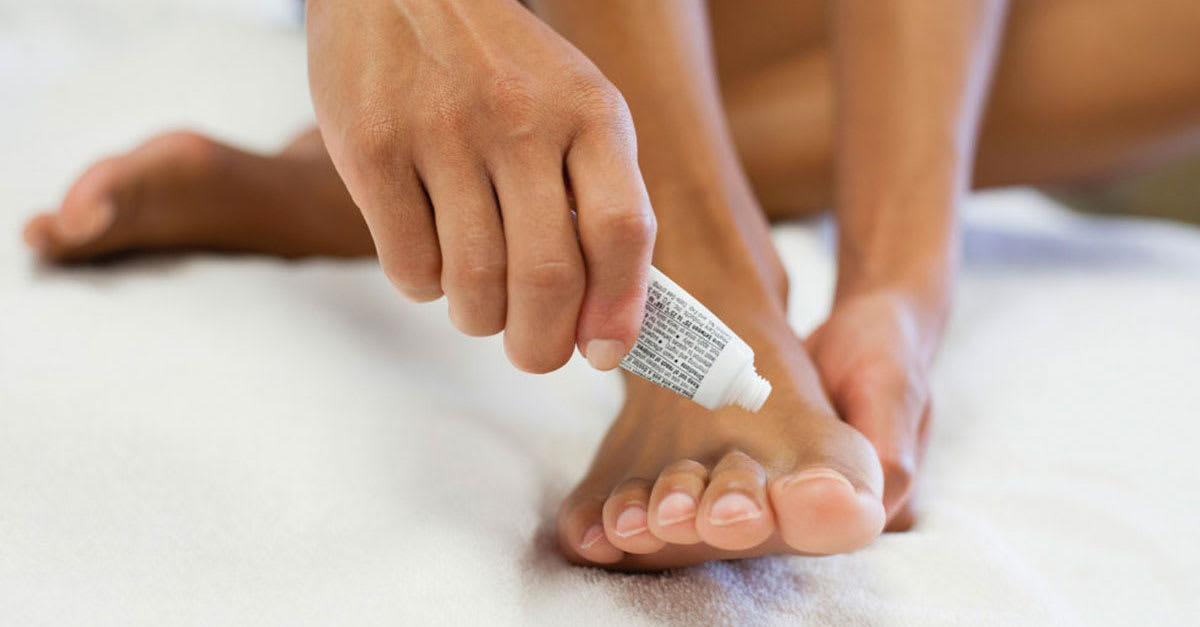The rising popularity of essential oils has drawn the attention of health-conscious individuals worldwide. People are increasingly turning to natural solutions to address their health concerns. One such rising question is: Which essential oil is the strongest antifungal? This article delves into the fascinating world of essential oils and highlights the most potent ones with antifungal properties.
This extensive exploration will help you understand the science behind essential oils, how they work, and which ones stand out in the fight against fungal infections. Feel delighted as we embark on this journey to bring holistic health into our lives.

The Science Behind Essential Oils
Essential oils are concentrated plant extracts that capture the plant's scent, flavor, and beneficial properties. They are obtained through processes like distillation or cold pressing. Essential oils have been used for centuries for their therapeutic properties, including antifungal benefits.
Their effectiveness lies in their unique constituents. They contain bioactive compounds like terpenes, aldehydes, phenol, and ethers. These compounds exhibit significant biological activities, including antimicrobial and antifungal actions. For example, thymol, found in thyme oil, is a powerful antifungal component.

How Do Essential Oils Fight Fungal Infections?
Before diving into the specific oils, it's crucial to understand how essential oils work against fungi. Fungal infections, such as athlete's foot, ringworm, and candida, are caused by various fungi that invade the skin or mucous membranes.
Essential oils combat these infections through multiple mechanisms:
- Cell Wall Disruption: Essential oils can weaken the fungal cell wall, leading to cell death.
- Inhibition of Spore Germination: Some oils prevent fungal spores from germinating and spreading.
- Enzyme Inhibition: They can inhibit enzymes crucial for fungal growth and reproduction.

Which Essential Oils are the Strongest Antifungals?
There's a wide array of essential oils known for their antifungal properties. Here are some of the most potent ones:
Tea Tree Oil
Tea tree oil is often at the top of the list for its strong antifungal properties. Extracted from the leaves of the Melaleuca alternifolia plant, it contains compounds like terpinen-4-ol, which is effective against a broad spectrum of fungi. Studies have shown that tea tree oil can combat fungal infections such as athlete's foot and nail fungus.
Thyme Oil
Thyme oil, derived from the herb thyme, is another potent antifungal essential oil. It contains thymol and carvacrol, both of which exhibit significant antifungal activity. Thyme oil has been proven effective in treating fungal infections like ringworm and candida. Its strong aroma also acts as a natural insect repellent.
Oregano Oil
Oregano oil is a powerhouse when it comes to antifungal properties. It contains carvacrol and thymol, both known to disrupt fungal cell membranes. Research has shown that oregano oil is effective against various strains of Candida, making it a go-to option for treating yeast infections.
Clove Oil
Clove oil is rich in eugenol, a compound with remarkable antifungal properties. It has been used traditionally to treat skin infections and oral thrush. Clove oil is also potent against fungi responsible for toenail fungus and athlete's foot.
Lavender Oil
Lavender oil, known for its soothing aroma, also boasts antifungal properties. It contains linalool and linalyl acetate, which have been shown to combat fungal infections. Lavender oil is a favorite for treating skin conditions and promoting overall skin health.

How to Use Essential Oils for Fungal Infections
Using essential oils effectively requires proper application techniques to ensure safety and efficacy. Here are some methods:
Topical Application
For skin infections, dilute the essential oil with a carrier oil, like [coconut oil](https://livananatural.com/blogs/news/the-ultimate-guide-to-antifungal-bodywash-say-goodbye-to-fungal-infections), to avoid skin irritation. Apply the diluted oil directly to the affected area and repeat as needed.
Bath Soaks
Add a few drops of antifungal essential oil to your bathwater. Soaking in this aromatic bath can help treat fungal infections on the skin and nails.
Aromatherapy
Inhalation of essential oils through diffusers can help boost your immune system, making it easier for your body to combat fungal infections from within.
Safety Precautions When Using Essential Oils
While essential oils offer tremendous benefits, safety is paramount:
- Patch Test: Always perform a patch test before using a new essential oil topically to check for allergies.
- Proper Dilution: Never apply essential oils directly to the skin without dilution. Learn more about [skin applications](https://livananatural.com/blogs/news/why-does-my-skin-burn-after-applying-aloe-vera-gel) to stay safe.
- Consultation: Consult a healthcare provider before using essential oils, especially if you have pre-existing conditions or are pregnant. For instance, find out if you can use [aloe vera gel during pregnancy](https://livananatural.com/blogs/news/can-you-use-aloe-vera-gel-when-pregnant).
Conclusion
Essential oils are a natural and effective way to combat fungal infections. Among the numerous options, tea tree oil, thyme oil, oregano oil, clove oil, and lavender oil stand out as the strongest antifungal essential oils. Their unique bioactive compounds make them potent allies in the fight against fungi.
By understanding the science behind these oils and how to use them safely, you can harness their power to promote better health and well-being. Essential oils offer a holistic approach to managing and preventing fungal infections, bringing you closer to a life of wellness. For a complete body detox, check out [wikiHow's guide](https://www.wikihow.com/Deep-Clean-Your-Body) on deep cleaning your body.
For more information on the benefits and uses of essential oils, visit AromaWeb.
FAQs
What is the best essential oil for treating athlete's foot?
Tea tree oil is highly recommended for treating athlete's foot due to its strong antifungal properties.
Can essential oils be ingested for antifungal benefits?
Ingesting essential oils is generally not advisable without the guidance of a healthcare provider, as they are highly concentrated and can be toxic when ingested improperly.
How long does it take for essential oils to treat fungal infections?
The duration for results varies depending on the severity of the infection and the oil used. Consistent use over a few weeks is usually necessary for noticeable improvement.
As an Amazon Associate, I earn from qualifying purchases.















